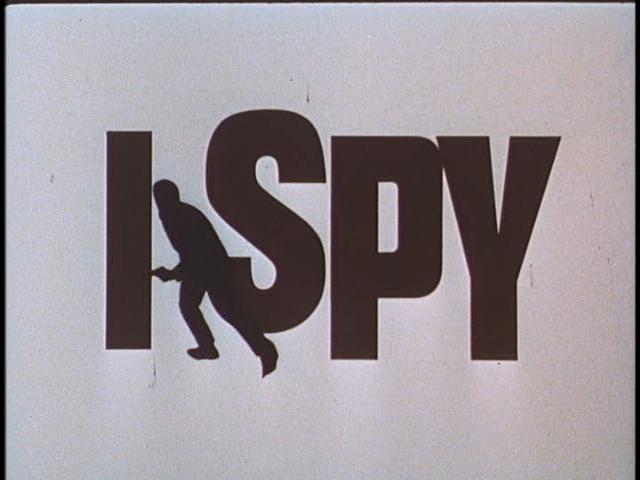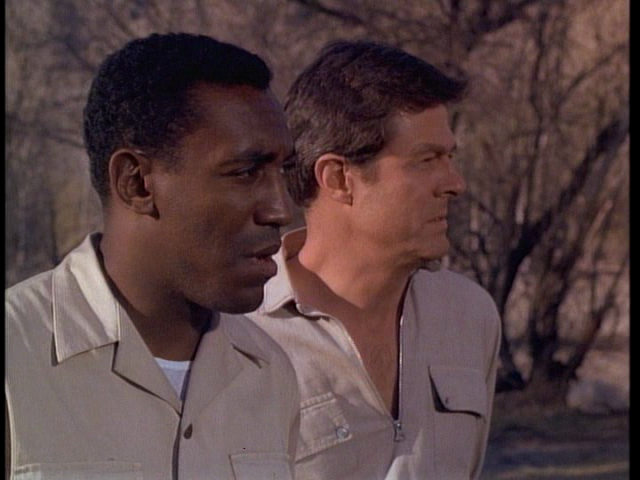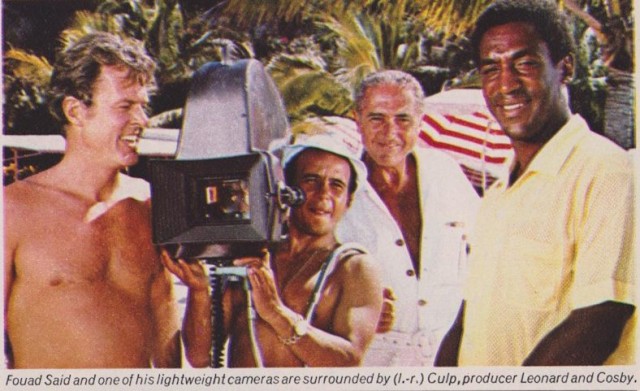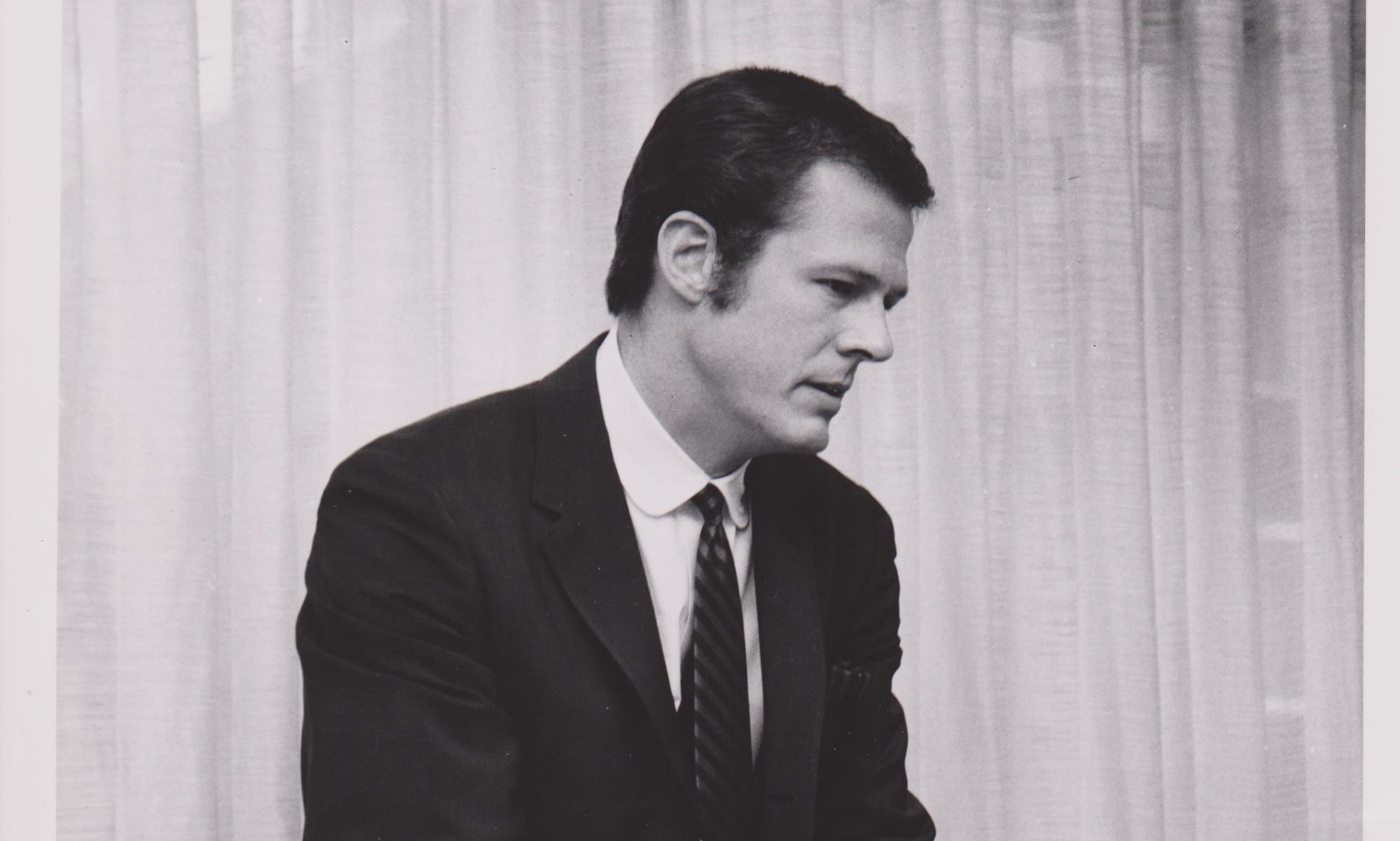Guest post by Barbara K. Emanuele
 When my friend casually tweeted “What should I write about,” I spent forty five minutes trying to convince him why I Spy should be remembered in its fiftieth anniversary year. The 144 character conversation ended with him apologizing that he couldn’t because of “the Cosby thing.” And therein lays the problem. We’ve known about “the Cosby thing” since 1997, but it’s social media for better that has convicted him and for worse condemned innocents who didn’t know they danced with a demon.
When my friend casually tweeted “What should I write about,” I spent forty five minutes trying to convince him why I Spy should be remembered in its fiftieth anniversary year. The 144 character conversation ended with him apologizing that he couldn’t because of “the Cosby thing.” And therein lays the problem. We’ve known about “the Cosby thing” since 1997, but it’s social media for better that has convicted him and for worse condemned innocents who didn’t know they danced with a demon.
Though every book of faith warns against worshipping false idols, Bill Cosby was always considered safe to worship because he was one of the “good guys.” He is an educated, self-made man, with a loving wife and family. He is also funny as all get out. I switched tenses to describe him because he is still all of those things, though now we understand he is another character played by William H Cosby, Jr.
Now we understand this man may be one of the most dangerous psychopaths we have ever known.
There is no negating what he has done. Countless women were victimized daily by him: at the time of the initial “seduction” when he got them to trust him, at the moment of the violent act, and every day thereafter when these women were denied their rightful justice because no one could believe that Alexander Scott / Fat Albert / Cliff Huxtable could do this.
Because we forget that actors are not their characters.
There is no question he needs to be punished. The Statute of Limitations must be done away with when it comes to sexual crimes, so the victims can come forward when they have made a safe place for themselves to do so. Perhaps that may be his final act for us, to be the impetus for such legislation. In the meantime, the only recompense these victims have is knowing he is guilty in the court of public opinion, and maybe in civil court. Perhaps that will help them; it will not hurt him.
Psychopaths cannot be hurt because they cannot feel.
But in the void of his lack of feeling are pawns who find their collective legacy being wiped out by his.
 I Spy was one of the few correct and true things NBC has ever done. The nation needed to see in a non-proselytizing manner that all men are created equal. We were given in a weekly fifty minute non-statement, two men literally equal in size and stature sharing a meal, a room, a mirror, a bathroom. Nothing mattered as long as they got the job done and had fun. The end. This steady dose of Kelly Robinson and Alexander Scott walking side by side, living life together was absorbed subliminally and obviously and hearts began to change. Self-doubt about whether it was really OK to sit next to your classmate and eat off each other’s plates, finish their drinks, go camping with them, was obliterated. Ninety episodes later Alexander Scott made it clear to young men they no longer had to fear being the nerd who had done so well scholastically because being so didn’t negate your ability to be a man. To be a good human being.
I Spy was one of the few correct and true things NBC has ever done. The nation needed to see in a non-proselytizing manner that all men are created equal. We were given in a weekly fifty minute non-statement, two men literally equal in size and stature sharing a meal, a room, a mirror, a bathroom. Nothing mattered as long as they got the job done and had fun. The end. This steady dose of Kelly Robinson and Alexander Scott walking side by side, living life together was absorbed subliminally and obviously and hearts began to change. Self-doubt about whether it was really OK to sit next to your classmate and eat off each other’s plates, finish their drinks, go camping with them, was obliterated. Ninety episodes later Alexander Scott made it clear to young men they no longer had to fear being the nerd who had done so well scholastically because being so didn’t negate your ability to be a man. To be a good human being.
Mr. Sulu and Lt. Uhura would not have journeyed through Star Trek without Alexander Scott.
Martin Riggs and Roger Murtaugh would not have their Lethal Weapon without Alexander Scott.
Without I Spy and executive producer Sheldon Leonard’s desire to film the series in those exotic locations the script called for, there would have been no reason for Fouad Said an Egyptian American, to create many of the technical advances that made filming on the big and small screen much easier. Said gave us the Cinemobile, the wireless mike, among many other improved or completely new devices. Filming for TV and cinema didn’t just move forward, thousands of dollars were saved making overseas filming possible when costs would otherwise have been prohibitive.
 This equipment also threatened to push out the antiquated cameras, lights, mikes, and men that had been Hollywood staples for years, and no one was happy about that. For most of the time I Spy was filmed Said could not join the unions you would have expected him to be a highly valued member of. That came only as the series was ending, as did other breakthroughs.
This equipment also threatened to push out the antiquated cameras, lights, mikes, and men that had been Hollywood staples for years, and no one was happy about that. For most of the time I Spy was filmed Said could not join the unions you would have expected him to be a highly valued member of. That came only as the series was ending, as did other breakthroughs.
Robert Culp made Clint Eastwood and Ben Affleck possible. Culp was one of the first actors who also wrote and directed his own material, and ticked off many suits in the business for doing so. He took the first generation of anger so the second and third generations win their Emmys and Oscars. And when Alexander Scott appeared on our television screens, the words that came out of his mouth were the best Culp could make possible. When Cosby won his Emmys, Emmys Culp was nominated for, the latter didn’t mind. It was a win for him, for the show, for humanity.
Remember and celebrate the series for what it has given us. Removing it from the airwaves, trying to wipe it from our collective consciousness, does not in any way harm a predator. We are harming ourselves because we are forgetting how we got to where we are.
I Spy didn’t gently break through glass ceilings of stereotypes. It took a jackhammer to the concrete nonsense that Hollywood created to make itself pretty and in the chaos created true beauty. Its crew did this. Its writers, directors, musicians and producers did this. Its actors and actresses did this. It did this when the country wanted to bury its collective head in the sand and pretend all was well when it knew change had to come but was too painful to look at. I Spy did all of this and can do it again if we allow it to.
One truly disturbed individual cannot be permitted to undo it.


Great post, Lisa! It’s sad it had to start out by discussing Cosby’s disgusting rape history, his horrid psychopathic disorder, but you are right that doesn’t overshadow what I Spy was, what it represented, and the movement forward it initiated in our entertainment industry and, more importantly, in our society.
Thanks Mona, Barbara wrote this one though. 🙂 I wrote the essay prior, “Why I Spy Still Matters.” All the same, I also concur that what Cosby did shouldn’t overshadow what I Spy was.